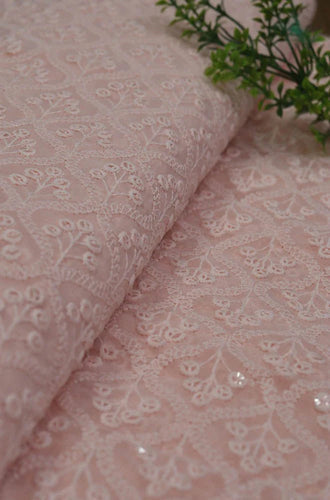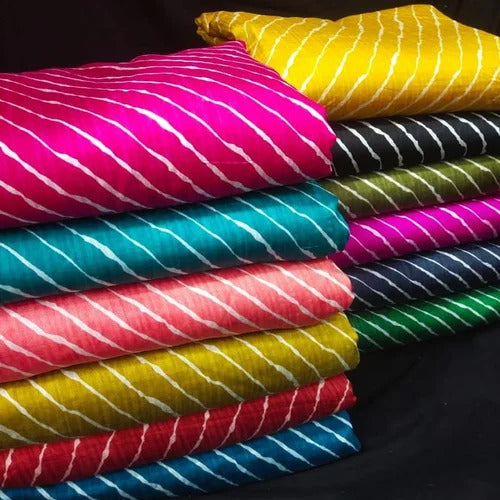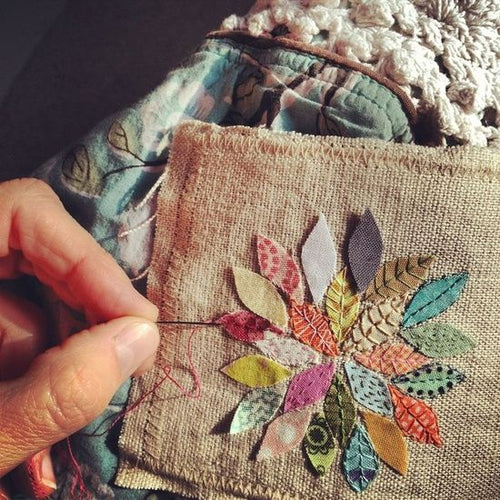
CHIKANKARI TEXTILE
The craft of Chikan work, often referred to as Lucknow Chikan, is over 400 years old with a firm presence in the Indian and global fashion arena. The technique of its creation is called Chikankari and its unique sensibility flaunts grace and elegance as subtly as the wearer pleases. Though traditionally it was done on Muslin cloth, white thread on white fabric, today it can be seen on various fabrics and colors, popularly pastels. While its central hub and place of origin is Lucknow, Chikan work has spread far and wide within India, with West Bengal and Awadh also specializing in its production.
There are hardly any garments with Lucknow Chikan work that don’t use floral patterns or motifs. Due to the strong influence of Persian aesthetics on this craft, flowers have been a staple in Chikankari designs. The types of flowers (including their stems, Buti, leaves and Paisley motifs), as well as their stylizations, have varied throughout time to keep up with fashion trends, but in general have remained fairly intricate and delicate.
Usually there is a combination of different Lucknow Chikankari stitches used within one whole pattern. These include: Makra, Kaudi, Hatkadi, Sazi, Karan, Kapkapi, Dhania-patti, Jora, Bulbul and many more. Originally Chikan work was done on Muslin or sheer cotton cloth with white thread. Over time, more colors have been incorporated including pastels and fluorescents. The fabrics used for this craft must be soft as hand stitching is required. They include: Silk, Chiffon, Georgette, Net, Voile, Kota, Doriya, Organza, Cotton and faux fabrics.
There is a tremendous variety of garments that come adorned with this type of work, for men as well as women. This includes everything from long and short kurtas, tunics, sarees, Anarkalis, palazzos and Capri pants to a range of accessories such as shoes, bags, belts, lamp shades, table cloths and cushion covers.
Lucknow Chikan embroidery should ideally be dry cleaned, though this depends more on the fabric than the work. Some fabrics, such as silk, need to be dry cleaned but others, like cotton, can be hand washed.





